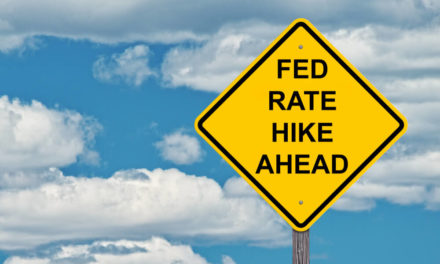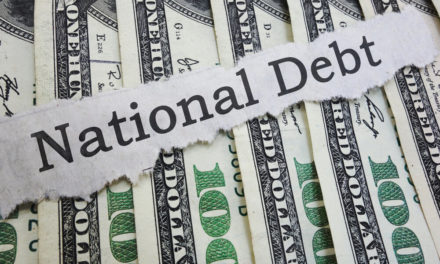BlockRock CEO Larry Fink and billionaire Bridgewater Associates hedge fund titan Ray Dalio are sounding the alarm regarding how the rising federal deficit is going to lead to a debt crisis, crushing the value of the U.S. dollar.
Per a recent story by Bloomberg:
Larry Fink, chief executive officer at BlackRock Inc., said at the Bloomberg New Economy Forum in Singapore on Wednesday that President Donald Trump and other leaders should be mindful that running up deficits now will have consequences down the line. The U.S. budget gap may surpass $1 trillion as soon as next year, which is already causing the Treasury Department to increase the size of some of its monthly auctions to record levels. That hasn’t worked out so well: On Wednesday, a $19 billion sale of 30-year bonds drew the weakest demand since 2009, as measured by the bid-to-cover ratio.
Fink wasn’t surprised by the unpopularity of the bonds, mainly because China is one of the U.S.’s biggest lenders and it’s never good to fight with your banker the way the U.S. is with China in the ongoing trade war.
“Generally, when you fight with your banker, it’s not a good outcome,” he said. “I wouldn’t recommend you fight with your lenders, and we’re fighting with our lenders. Forty percent of the U.S. deficit is funded by external factors. No other country has that.”
“We are going to have more and more debt because of the deficits, and because of the deficits, the investors are going to demand a bigger premium,” he said. “That could be the real issue related to everything: where we have interest rates becoming too high to sustain the economy with its growth rates.”
If his argument sounds familiar, that’s because it is. Two months ago, a fellow market savant, Ray Dalio of Bridgewater Associates, made a similar forecast for how things will go in this new era of fiscal profligacy. To me, he effectively spelled out America’s worst nightmare: that the U.S. dollar would lose its status as the reserve currency of the world, thereby crippling the federal government’s ability to run persistent budget shortfalls and making the U.S. a much less attractive destination for foreign investment.
Since then, not much has changed, other than Democrats wresting control of the House in the midterm elections. That should stop anymore deficit-financed tax cuts that could have given the economy another shot in the arm — albeit once financed by further increasing the national deficit and bringing the U.S. to a full-fledged debt crisis.
Nevertheless, when you have two of the most influential people in finance sounding the alarm over the same scenario, it’s probably time to start paying attention.




